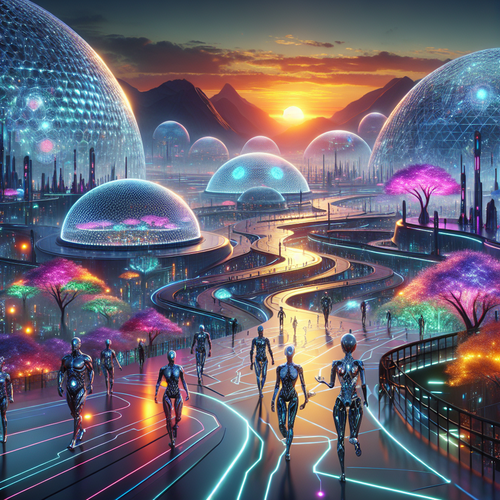
Exploring the Future of AI in Gaming
Exploring the Future of AI in Gaming
The gaming industry has witnessed enormous evolution over the past decades. With advancements in technology, particularly artificial intelligence (AI), the future of gaming appears brighter than ever. In this post, we delve into how AI is redefining the gaming landscape, enhancing player experiences, and paving the way for innovative game design.
AI: Transforming Game Design
AI is revolutionizing the way games are designed. Traditionally, game developers relied heavily on scripted events to guide player interaction. However, with the advent of AI, developers can now create dynamic, adaptable game environments.
- Procedural Content Generation: AI algorithms can automatically generate vast landscapes and intricate levels, allowing for infinite gameplay possibilities. This technique not only saves time but also creates unique gaming experiences with every playthrough.
- Adaptive Difficulty Scaling: AI can analyze a player’s skill level in real-time and adjust the game’s challenge accordingly, ensuring a balanced experience that maintains players’ engagement without frustrating them.
- Intelligent NPC Behavior: Non-Player Characters (NPCs) can be enhanced with AI, resulting in more realistic interactions. Unlike traditional NPCs that follow predictable patterns, AI-powered characters can learn from the player’s actions, creating more immersive environments.
The Impact of Machine Learning
Machine learning, a subset of AI, plays a crucial role in enhancing gaming experience. This technology can analyze player behavior to personalize game elements. For example:
- Personalized Recommendations: Machine learning can help developers understand player preferences and suggest games or in-game purchases tailored to individual players.
- Cheat Detection: AI algorithms can efficiently detect cheating behavior. By analyzing patterns and inconsistencies, developers can maintain fairness in multiplayer environments.
Interactive Experiences in Virtual and Augmented Reality
The integration of AI in Virtual Reality (VR) and Augmented Reality (AR) is also noteworthy. AI enhances these immersive technologies, allowing for:
- Smart Object Recognition: In AR games, AI can identify real-world objects, merging them seamlessly with the digital environment. This allows for more engaging and interactive gameplay.
- Enhanced Immersion: In VR, AI contributes to creating responsive and intelligent characters that can adapt to player interactions, thus enriching the sense of presence in virtual worlds.
Challenges and Ethical Considerations
While the benefits of AI in gaming are commendable, several challenges need address. Issues such as player data privacy, ethical AI use, and the potential for over-reliance on algorithms to guide design decisions are critical discussions within the industry. Developers must strive for transparency and ethical standards to ensure that advancements in AI contribute positively to the gaming experience.
Conclusion
The prospect of AI in gaming offers thrilling possibilities. As technology evolves, the lines between player and character continue to blur, leading to new forms of storytelling and interactivity. To learn more about the advancements and future of AI technologies, check out our post on The Rise of AI in Cybersecurity: Future Trends.













